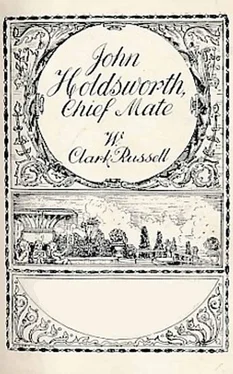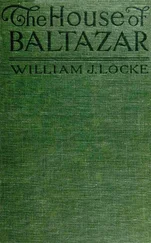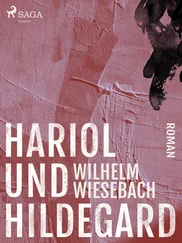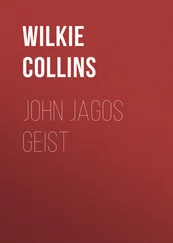William Clark Russell - John Holdsworth
Здесь есть возможность читать онлайн «William Clark Russell - John Holdsworth» — ознакомительный отрывок электронной книги совершенно бесплатно, а после прочтения отрывка купить полную версию. В некоторых случаях можно слушать аудио, скачать через торрент в формате fb2 и присутствует краткое содержание. Жанр: unrecognised, на английском языке. Описание произведения, (предисловие) а так же отзывы посетителей доступны на портале библиотеки ЛибКат.
- Название:John Holdsworth
- Автор:
- Жанр:
- Год:неизвестен
- ISBN:нет данных
- Рейтинг книги:3 / 5. Голосов: 1
-
Избранное:Добавить в избранное
- Отзывы:
-
Ваша оценка:
- 60
- 1
- 2
- 3
- 4
- 5
John Holdsworth: краткое содержание, описание и аннотация
Предлагаем к чтению аннотацию, описание, краткое содержание или предисловие (зависит от того, что написал сам автор книги «John Holdsworth»). Если вы не нашли необходимую информацию о книге — напишите в комментариях, мы постараемся отыскать её.
John Holdsworth — читать онлайн ознакомительный отрывок
Ниже представлен текст книги, разбитый по страницам. Система сохранения места последней прочитанной страницы, позволяет с удобством читать онлайн бесплатно книгу «John Holdsworth», без необходимости каждый раз заново искать на чём Вы остановились. Поставьте закладку, и сможете в любой момент перейти на страницу, на которой закончили чтение.
Интервал:
Закладка:
CHAPTER I. – SOUTHBOURNE.
In a period of English history which graybeards call the good old times—the fine old times; that is to say, when Parliament was horribly corrupt, and the Poor Laws as barbarous as the Inquisition; when it took fifteen hours to go from London to Dover; and when at least one-half of the conveniences which we now very reasonably call the necessities of life had no existence—Southbourne was a small straggling village, and, by reason of the quaint and primitive aspect of its houses, something, even in those good old times, like an anachronism on the face of the land. What is now a well-looking street, fairly paved, and decorated with a number of showy shop-windows, was then an uneven road, with great spaces of grassy land, dusty and closely nibbled by goats, between the houses; whilst the houses themselves were mostly gable-roofed, with latticed windows, which served excellently to exclude the light, and which gave a blank and lack-lustre look to the edifices, as though they were weary to death of the view over the way.
Yet, in spite of its architectural deformities, Southbourne was such a place as would weave its homely interests about a man’s heart, and be present to his mind when gay and splendid scenes were forgotten. At the very entrance of the village, as you went into the street out of the dusty London Road, stood the King’s Arms Inn, a long, low-built, white-faced tavern, with a great sign-board hung flagwise over the doorway, which, when the wind was fresh, would swing with hoarse outcries, as though urging the distant wayfarer to make haste and enjoy the welcome that was to be obtained, for a few pence, from the stout, well-fed host who presided within. Opposite this tavern stood a decent farmhouse, its thatched roof black with time, begirt with walls and palings, within which, when the harvest moon was high, great stacks of hay would rear their gold-coloured sides, and make the air as sweet as the smell of new milk. And all about this pleasant farmhouse were apple and cherry trees, under whose shadows a vast family of cocks and hens held the day eternally busy with their voices; while pigs in unseen sties grunted their hungry discord, and did their lazy best to drown the mournful cooing of doves in wicker cages, and the cheerful notes of the birds, who were attracted in countless numbers to the farmyard.
Between these two houses ran what the villagers called the High Street; and the eye followed the road, patched here and there with dark-coloured grass, for nearly a third of a mile, noting the gable-roofed houses that looked at each other from either side; the blacksmith’s shed, where the bellows were always roaring; the flat-roofed baker’s shop, standing importunately forwards, away from the little house in which the baker lived; the butcher’s hard by; the apothecary’s next to that; and the linendraper’s shop, which had absorbed the frontage of no less than two solemn-looking houses—noting these and other details contributing to the carnal or frivolous interests of the place, until it settled upon a small building, which, standing in the centre of the road, narrowed it into a large and a small lane, and thus marked the extent and importance of the High Street.
Our story opens on a summer’s evening. The daylight is still abroad upon the distant hill-tops, but the twilight has fallen like an inaudible hush upon Southbourne, and the farmyards are tranquil, save when, now and again, some uncomfortable hen seeking a resting-place near to her sovereign cock hops for his perch, but in hopping falls and awakens the sleepers with her fluttering scrambles and keen notes of distress, echoed by a hundred wondering throats.
The evening is warm, and many of the house doors are open; and at these open doors sit, here and there, men in their shirt-sleeves, or in homely smocks, smoking long pipes, and addressing each other from across the road with voices bespeaking laborious thought, which demands many reflective puffs to clarify and adjust. Now the apothecary’s boy comes out and lights the coloured lamp over the door, while the apothecary within sets two wax candles against his brilliant globes of lustrous dyes and illuminates the darksome roadway with a crimson and a yellow gleam. Now the linendraper’s assistant steps forth and puts up the shutters to his master’s windows, whilst the master himself struts along the floor, flapping his counter with a dust-brush, and inhaling the appetising perfume which streams from an inner room, and which is the best assurance he could demand that his supper is preparing. Anon comes a lame man, armed with a ladder, a lanthorn, and a can of oil at his girdle; he sets the ladder against a lamp-post, and in five minutes’ time succeeds in kindling a faint uncertain light in the darkling air. Thrice does he perform this laborious duty, and then, lo! the High Street is illuminated.
These lights seem to act as signals for sundry groups of gossips, standing here and there along the dusty road, to disperse. The small cackle of talk, like the click of wheels driven against springs, ceases; the old hobble towards the houses, the young follow yet more leisurely; the gloom deepens; one by one the doors are closed and little yellow lights twinkle mistily upon the latticed windows. And now, though the clock of St. George’s Church has not yet tolled the half-hour past eight, one may easily see that the good village of Southbourne, with one eye upon the candles, costly at sixteenpence the pound, and another eye upon the early hour that is to expel it from its slumbers into the fields and the workshops, is making what haste it can to creep with heavy eyelids into bed.
In the house that looks askant down the road and breaks the thoroughfare into lanes, there is a sorrow at work that should seem absolutely inconsistent with the serenity and peace of the summer evening outside.
Three persons are seated in a cosy room; a tall lamp on a table sheds a soft light upon the walls; the window is open, and the large tremulous stars look in through the branches of the elms which front the little building. How sweet is the smell of the clematis about the window! and see, a great black moth whirrs towards the lamp and occupies the silence with its vigorous slaps against the ceiling.
The old woman in the high-backed chair, looking down upon her placid hands, is a perfect picture of handsome old age: hair white as snow; a sunken cheek touched with a hectic that passes well for, if indeed it be not, the bloom of health; a garrulous under lip; a mild and benevolent expression. She is dressed in an antique satin gown, and a fine red silk handkerchief, as large as a shawl, is pinned about her shoulders.
Facing her sits a young man, broad-shouldered and bronzed, with large lustrous black eyes and dark wavy hair. He wears a pilot cloth coat and black trousers, bell-mouthed at the feet, and a plain silver ring upon his left hand.
Close beside him, on a low chair, sits a young girl, with a sweet and modest face, and bright yellow hair which shines in the lamplight like gold, and blue eyes filled now with tears.
So they sit, so they have sat, for many minutes in silence, and nothing is heard but the ticking of the clock on the mantelpiece, or the awkward moth that hits the ceiling, or now and again the melancholy plaint of some dreaming or belated bird from the dark country that stretches outside like a vision under the throbbing starlight.
Presently the old lady, lifting her head, says:
“I don’t think it pleases God that people’s hearts should be sorrowful. Nothing should grieve us but the fear of His anger; and if there be truth in religion, and any wisdom in human experience, there is nothing in this world that should make us sad.”
Читать дальшеИнтервал:
Закладка:
Похожие книги на «John Holdsworth»
Представляем Вашему вниманию похожие книги на «John Holdsworth» списком для выбора. Мы отобрали схожую по названию и смыслу литературу в надежде предоставить читателям больше вариантов отыскать новые, интересные, ещё непрочитанные произведения.
Обсуждение, отзывы о книге «John Holdsworth» и просто собственные мнения читателей. Оставьте ваши комментарии, напишите, что Вы думаете о произведении, его смысле или главных героях. Укажите что конкретно понравилось, а что нет, и почему Вы так считаете.











![William Frith - John Leech, His Life and Work, Vol. 2 [of 2]](/books/748201/william-frith-john-leech-his-life-and-work-vol-thumb.webp)
